Clearly, some are just tired of the type of work they’ve been doing. Of the four million people who quit their jobs in May, 740,000 came from the leisure and hospitality sector – unquestionably a group that was overworked and underappreciated during COVID. But that leaves another 3.2 million people and, for many if not most of them, I’m betting the issue is cultural.
After five, ten, or 20 years in a career, most people aren’t having trouble with the work they’re being asked to do. Their issues lie with how and where they are being asked to do it. Those are cultural issues. And instead of suffering through toxic company cultures like generations of workers before them have done, people are saying “No” to jobs that are unfulfilling, en masse.
This presents an incredible opportunity for you.
To succeed post-COVID, there’s one thing you have to get right.
In the Fall of 2019, former LOOMIS Co-Executive Creative Director Michael Tuggle and I published a book called The Voice of the Underdog: How Challenger Brands Create Distinction By Thinking Culture First. In it, we outline the seven foundational elements required to build a meaningful and lasting company culture. We believed then that for every company, and challenger brands in particular, building a transcendent company culture is crucial to doing great work, attracting and keeping top talent, and building the kind of lighthouse brand that attracts stakeholders at every level.
Today, we are no less committed to our premise. But in light of the shifting employment dynamics post-COVID, we thought it would be interesting to examine our seven foundational tenets through that lens. After 16 months at home, employees aren’t just wishing and hoping to work for brands with great company cultures. They’re demanding it.
If you’re ready to start building and fostering a great company culture, or simply want to improve the company culture you have, here are the seven elements to focus on first:
Safety.
Post-COVID, feeling safe at work is the first thing your employees will think about when it’s time to return to the office. As a company or brand leader, you may be feeling a bit braver personally about returning to the office and wanting normalcy to return. Just remember, not everyone processed the pandemic the same way. Some people got the virus and weathered it just fine. Others had friends or family die from it. Coming back, many people are struggling with varying levels of anxiety about being back in a building with lots of people, or flying around the country to sales meetings, or commuting on public transportation. Do what you can to help your people feel safe. Listen to their concerns and accommodate them wherever possible.
Purpose.
If the pandemic didn’t fundamentally change your company’s purpose, odds are COVID gave it new resonance. At LOOMIS, our purpose it to help challenger brands compete and win against the category leaders. COVID-19 only intensified that need and our commitment to it. If you haven’t already, think about how you can use the pandemic and its aftereffects to energize your purpose and give it new meaning for your team. Then ask, what new doors could that perspective open?
Vulnerability.
It’s safe to say we were all forced to come to grips with our vulnerability over the past 16 months. With so much out of our hands, even the most controlling of us had to admit they didn’t have all the answers or knew how this would end. As you reestablish normalcy with your team, don’t lose that sense of vulnerability. COVID-19 reset the table for every company and brand in the country and, as we recover, there is a great opportunity for collaboration and allowing your team to help orchestrate the way forward. For many leaders, there will be an urge to grab the reins tightly and own every important decision. Resist that. You as a leader are not scalable. Your leadership is.
Belonging.
As the country shut down and companies moved to a work-from-home model, one of the first and biggest casualties was people’s sense of company belonging. When we were all in the office, there were daily cues to tell us we belonged. A kind word here. A thoughtful gesture there. But as we shifted to online meetings, there seemed to be very little room for those cues. Zoom meetings seemed to be just as efficient as regular meetings, but when they were over, they were over. No lingering. No side conversations or chit chat. As your teams return to the office full-time, or even to a hybrid schedule like the one we’ve employed, actively look for opportunities to remind your people they belong.







